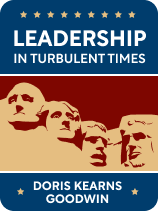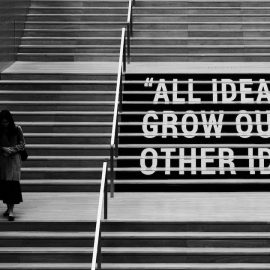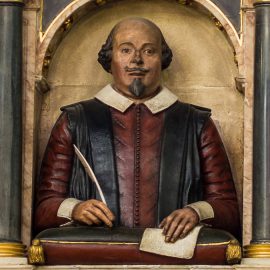

This article is an excerpt from the Shortform book guide to "Leadership: In Turbulent Times" by Doris Kearns Goodwin. Shortform has the world's best summaries and analyses of books you should be reading.
Like this article? Sign up for a free trial here .
What is Abraham Lincoln known for? What dilemma did Lincoln face upon being inaugurated?
Abraham Lincoln, who was president from 1861 to 1865, inherited a nation in crisis. By the time of his inauguration, seven Southern states had seceded from the Union, and his own party was divided. Lincoln had to decide whether they should try to keep the slave states in the Union, or if the time for compromise had ended.
Here’s how Abraham Lincoln freed the slaves in spite of the backlash.
Lincoln’s Crisis
According to Doris Kearns Goodwin, Abraham Lincoln’s Emancipation Proclamation was the result of a personal crisis he experienced early in his career. The crisis stemmed from several political setbacks that prevented him from fulfilling the campaign promises he’d made to his constituents. Lincoln saw these failures as a breach of integrity—a trait Lincoln prized highly—and thus a stain on his character. As such, these failures affected Lincoln deeply. At one point, he became so depressed that he was bedridden.
| Did Lincoln Lose Integrity? As Goodwin notes, Lincoln’s failures affected him deeply because he valued integrity highly—so much so that integrity was central to his identity. Lincoln was even known to his friends and colleagues as “Honest Abe,” a nickname he earned when he was a young shopkeeper chasing customers out of the store to ensure they got exact change. However, his sense of failure may have been unfounded. According to the definition of acting with integrity set forth by self-esteem expert Nathaniel Branden in The Six Pillars of Self-Esteem, Lincoln’s political failures didn’t constitute a breach of integrity. Branden argues that you can only act without integrity—in other words, contrary to your values—in situations you can control. Lincoln’s inability to fulfill his campaign promises doesn’t fit this definition because it stemmed from factors he couldn’t totally control—like the fact that people didn’t vote for his ideas. |
However, Goodwin argues, these failures were a blessing in disguise: They led Lincoln to reassess his political career and realize that, despite his desire to become president, he didn’t yet possess the necessary leadership qualities to excel at the job. In response, Lincoln embarked on a journey of self-improvement in two main ways.
First, Lincoln chose to study every important topic he could get books on, such as history and philosophy, in an effort to grow intellectually and morally. In this way, he refined his intellectual skills by learning classical logic and philosophical thinking—and he applied these new skills to the prevailing issue of the day: the expansion of slavery.
Second, Lincoln focused on doing his best at the job he did have—his career as a lawyer. In doing so, he learned to simplify complex topics and get his audience (in this case, jurors) on his side. These persuasive skills were on full display in an 1854 speech, which his contemporaries lauded as one of the best arguments against the expansion of slavery they’d ever heard.
| How Lincoln’s Journey Reflects the Ultralearning Model The self-improvement journey Lincoln embarked upon after realizing that he didn’t have the skills necessary to excel at being president reflects several of the principles necessary for strategic, self-directed learning that Scott Young espouses in Ultralearning. First, Young argues that to learn a subject or skill, you must first learn how to learn it—which you do partly by determining what you need to learn, then examining how others have learned that subject, so you can emulate their strategies. As Young recommends, Lincoln determined that to refine his intellectual skills, he needed to learn subjects like history and philosophy—and that to learn these subjects, he needed to read books, just as others had. Second, Young argues that to master a subject, you must practically apply any theoretical skills you’ve learned. Not only did Lincoln apply his newfound intellectual skills by analyzing the expansion of slavery, but he also regularly practiced rhetoric during his career as a lawyer. The fact that his contemporaries lauded his 1854 speech against the expansion of slavery suggests that Lincoln fully mastered both these analytical and rhetorical skills. |

———End of Preview———
Like what you just read? Read the rest of the world's best book summary and analysis of Doris Kearns Goodwin's "Leadership: In Turbulent Times" at Shortform .
Here's what you'll find in our full Leadership: In Turbulent Times summary :
- How great leaders grow from tragedy and personal challenges
- How FDR’s polio diagnosis helped him lead the country through the Great Depression
- Why Lyndon B. Johnson’s heart attack instrumental to the civil rights movement






